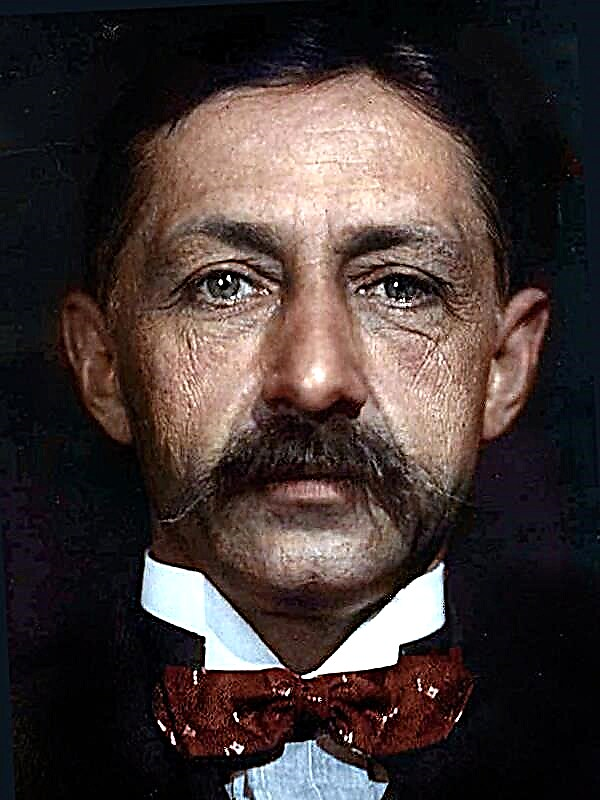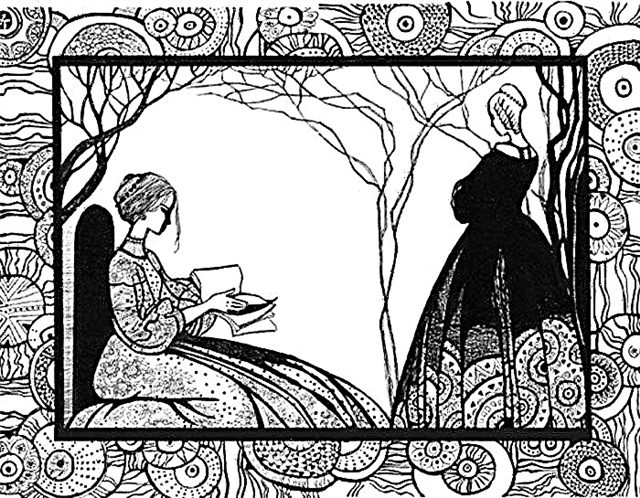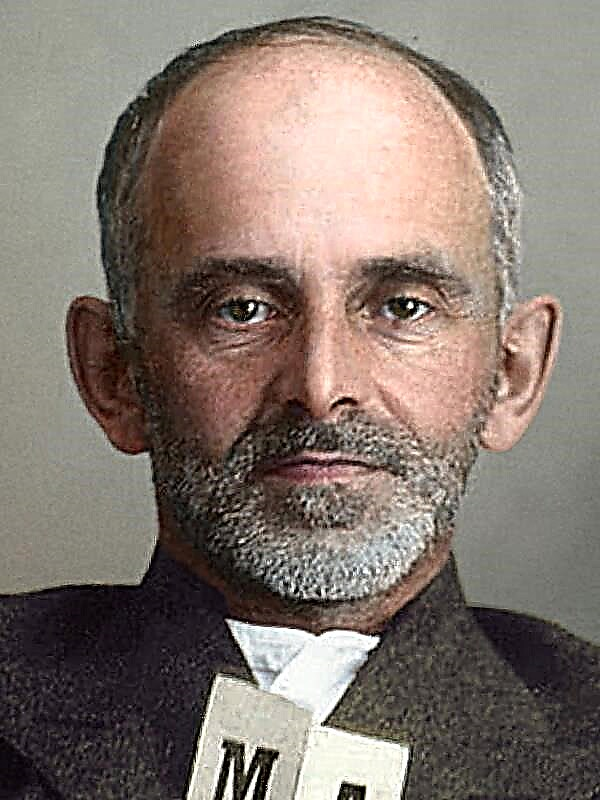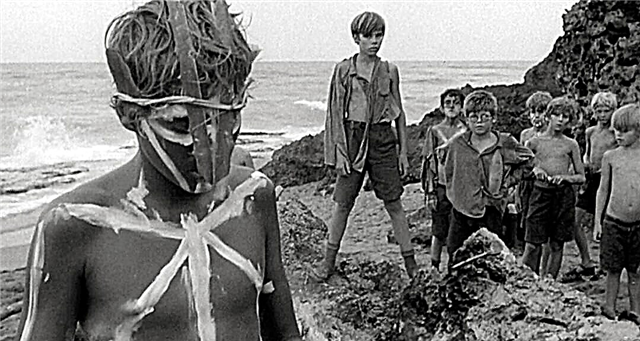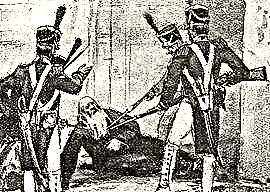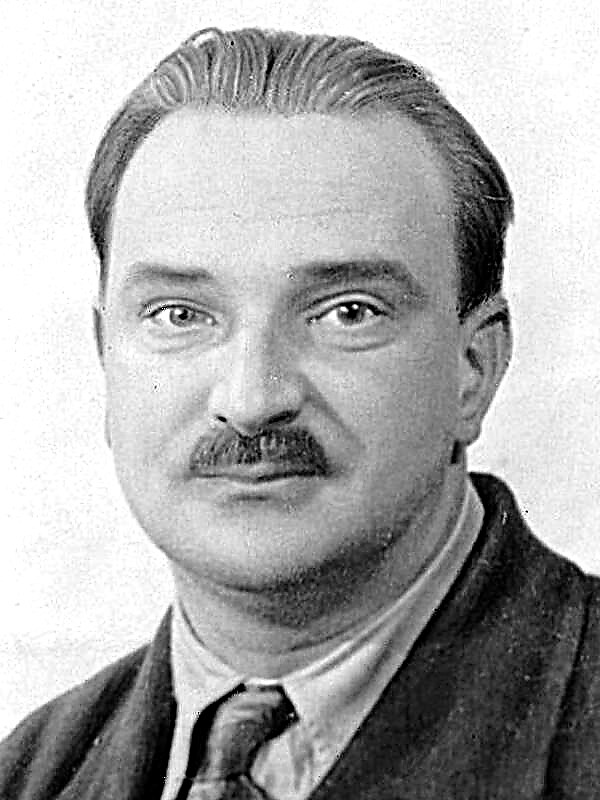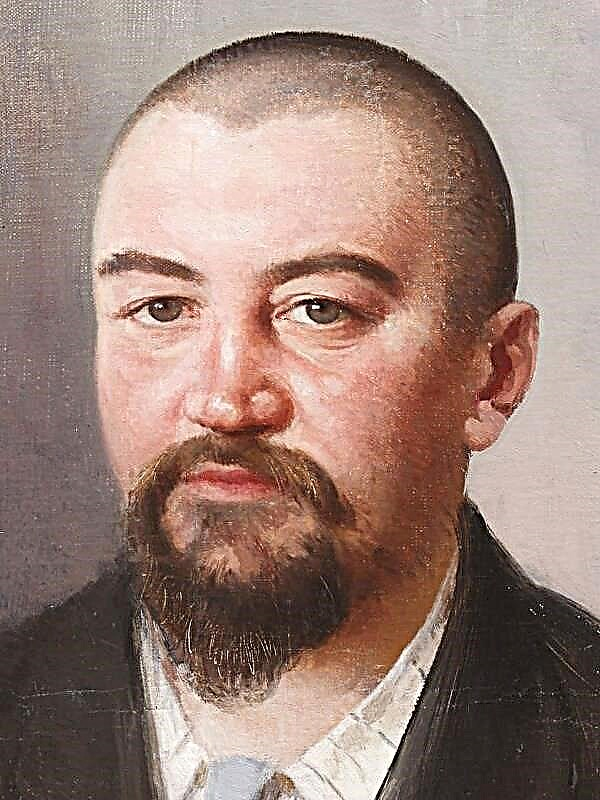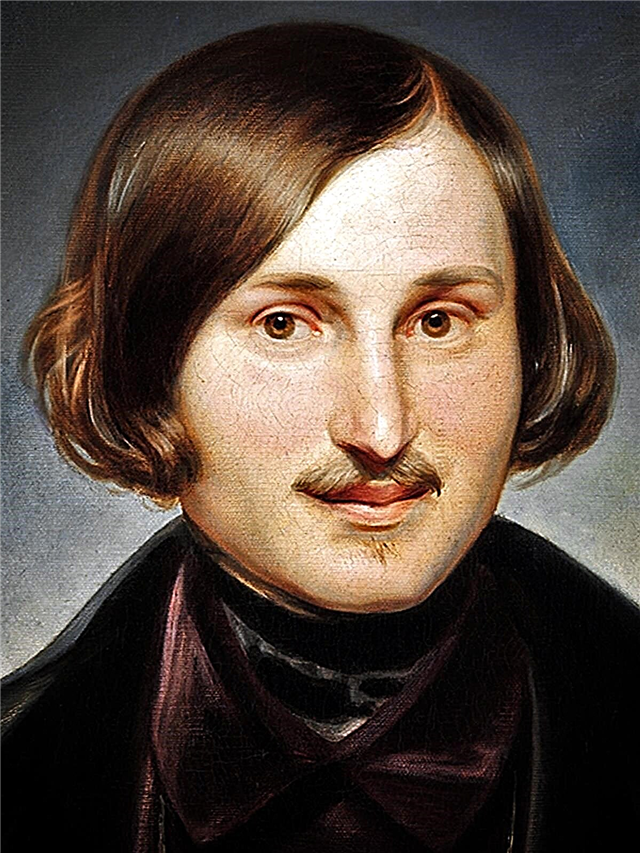: The book is written in the form of memoirs of the great-great-grandfather of the author. A combat officer, a shoulder trainer and a player, tells the descendants the story of his youth, full of meetings with interesting people and significant events.
The narration is conducted on behalf of the main character, Alexander Oleksin.
On the hardness of unripe pears and the acid of unripe apples
Russia, the 20s of the XIX century. The nobleman, lieutenant Alexander Oleksin, recalls how, because of an insult to his beloved Annette, a neighbor of the estate, he fell ill, was treated for a long time on the estate, read a lot, and began to write these Notes. He was cared for by the nurse Seraphim and her son Savka, the lackey and the hero’s milk brother. The narrator calls him Klit, as a friend of Alexander of Macedon.
Alexander talks about a difficult relationship with his beloved Annette, courageous, with character. She is the daughter of a colleague of his father, a count, rich and arrogant. Soon, lovers make peace and explain, there is intimacy between them. They vow never to leave and, after Annette speaks with her parents, get married. Alexander returns to serve in Novgorod, in the horse-jaeger regiment, and the heroes are separated, as it turns out, for many years.
He recalls studying in the Corps. The Cadets were trained, preparing lancers from them as guards. The students took revenge on the most cruel and unloved teacher, for which later they themselves suffered. The consequence was the death of a young cadet, about which the storyteller regrets all his life. He recognizes the desire for revenge as sinful and vain. Oleksin also discusses the prejudices of the noble honor, prompting to commit rash and reprehensible acts.
Alexander is a gambler, a captivating gambler. Parting with his beloved, he promises her not to play, but takes risks and loses a lot. The regimental commander considers Alexander careless, but lets go home for the money. On the way to St. Petersburg, to the parents, the hero gets involved in a new card game in the inn, plays a gang of cheaters and plays a duty.
The narrator recalls his first duel in Moscow. He protected passers-by on the street from a drunken colleague and wounded him in a duel. From the prestigious Moscow Guard he was sent into exile in provincial Chisinau, where he met with the exiled poet Alexander Pushkin. The hero recalls how the poet taught him fencing, being himself a great master.
The narrator thinks again about the fateful day that parted him from Annette. While in St. Petersburg, he went with his parents to make visits. During one of them, Anechka’s father publicly called him a scoundrel, slapped him and challenged him to a duel. The hero explains the incident with his premarital relationship with Annette.
The night before the fight, the hero recalls: many years ago, the children of the noble neighbors, Sasha and Anechka, immediately liked each other, retired at the pond, fed swans and ate cakes, finally drowning the silver tray.
In a duel, Alexander shoots into the air, and the count wounds him in the head. In order to save his son from punishment for a duel, his father assigns him to the Pskov Infantry Regiment, which significantly lowers the status of the former guard.
Asso, asso, always asso ...
The narrator’s memories return to Chisinau, to the time of invaluable friendship with Pushkin. Oleksin witnessed the poet’s duel and met his rival’s second, Dorokhov — a demoted officer, a remarkable personality, an unbridled “Bengal tiger”. Both friends secretly dreamed of meeting him.
Before the duel, the poet and his friend Major Raevsky came to visit Alexander to visit the gypsy camp, near which he rented an apartment. The heroes spent a wonderful night at the hospitable gypsies.Listening to gypsy songs, the friends cried: they saw real freedom here, which was not anywhere else in Russia. The old gypsy predicted true love and a test full of future to the hero.
Pushkin’s duel ended in a reconciliation of the parties, but Oleksin, struck by the brutality of the second, deliberately offended Dorokhov and provoked a challenge to the duel. Major Raevsky, invited by the storyteller in seconds, reproached the young lieutenant for stupidity and suggested that the well-known shoulder-strap saw himself in his eighteen-year-old Alexander in his youth.
Dorokhov wished to fight on swords, so Pushkin intensively trained Alexander. On the night before the duel, Oleksin again recalled Anechka, whom her parents had forever taken abroad. On the same night he celebrated his birthday with Rayevsky and Pushkin. Among the guests, the narrator nobly hid the fugitive criminal - the Moldavian nobleman.
The duel with Dorokhov lasted a long time; the narrator showed nobility, according to his notions of officer honor, which earned him the respect of his senior comrades. Both duelists were injured. Pushkin took care of Alexander for several days, then stayed in a gypsy camp. Soon, the poet told Oleksin that he began to write a novel in poetry.
The narrator visited a wounded opponent. Dorokhov told a sad story with his war-ravaged family and officials. Now demoted and impoverished, he has become a professional gambler to support his family. Former rivals parted as friends, feeling mutual spiritual closeness.
The hero recalls: when he was recovering from a duel with the count, Pushkin visited him and presented a handwritten copy of Andrei Chenier with censorship-prohibited lines. The poet asked to save poetry and not to show anyone.
To live with longing does not mean to live sadly
Having recovered after a duel with the count, the narrator goes to serve in the Pskov Infantry Regiment. The father, an honored officer, instructs him to be a leader and father to the soldiers. In Pskov, he takes a company, begins service, but soon leaves on vacation for a final recovery.
At home, parents introduce the son to the landlord neighbors: the general, his wife and granddaughter Pauline, cousin Anechka. Young people feel the kinship of souls. Polina is a wonderful, smart girl. Then, from Savka, the narrator learns that her relative lives in Anechka’s count's castle. He boasts to Alexander that he is engaged to her and happy. With grief, the hero drinks, realizing that his beloved is completely lost.
The narrator learns that Major Raevsky, a link mate, was arrested in Chisinau. Oleksin recalls how, together with Raevsky and Pushkin, he released Ursula, the Moldavian Robin Hood, from the prison. It was a whole secret operation with many participants. The poet distracted the commandant of the fortress, and the storyteller and Raevsky penetrated the casemate, where Alexander unscrewed the window grills, using his enormous power.
Ursul then fled, and to Alexander the whole idea seemed like a joke. Now Oleksin wonders: is this why the major was arrested. He also recalls the battle with the Turks, in which he participated with the Moldavian ruler Muruzi, for whose head the Turkish sultan promised a reward. The young lieutenant bravely got involved in the battle, killed the enemies. Soon after, the link ended.
Before the narrator’s departure to the Pskov regiment, Pauline and his relatives visit his estate. Young are drawing closer. On a walk near the count's pond, where young Sasha and Anechka once fell in love, Pauline confesses to Alexander that he loves him from that day. She reproaches him that he cannot forget Anechka in any way, although she knows that they will not meet again. Touched by the feelings of the girl, the narrator makes her an offer. The engagement is taking place, the wedding date is set. Alexander is not in love, he longs for Anya, but sees Pauline as a female friend, smart and courageous. The hero leaves for service in the regiment.
The service in the infantry is slow, the narrator gets used to the soldiers, teaches them and learns from them.He explains to his subordinates that at the end of service under the law they will cease to be serfs and will receive free will. It teaches them to be internally free, because only such a soldier is able to protect the Fatherland.
In 1825, the Decembrists revolt took place in St. Petersburg. Alexander's regiment is not involved in the suppression of rebellion. Due to the incident, the hero’s father becomes ill, Alexander is given a short vacation. Father criticizes the conspirators, like most nobles who did not support anti-monarchist speech.
Alexander meets the bride and shows her the forbidden manuscript of Pushkin “Andrei Chenier”. Pauline sees in the verses a foresight of the revolution and writes a dedication over the verses: "On December 14th." She sympathizes with the Decembrist uprising and wonders how the groom treats him. For the first time, the hero thinks about the goals of the conspirators and looks at what happened with an impartial gaze, and not like an oath of an officer. Being in a strong emotional excitement, the characters enter into intimacy.
On the way to Pskov, the hero suffers because he betrayed his love for Anechka, gets drunk, plays cards with an unfamiliar lieutenant, and in excitement loses a copy of Andrei Chenier. Tormented by remorse and almost shot himself, he plays back the precious verses, almost losing Savka.
Childhood friends rush to say goodbye to the dying nurse Seraphim. Before his death, the old woman tries to tell the hero important news about Anechka, but pronounces only her name - Vanechka. Upon arrival at the service, Alexander is arrested.
All the stairs of the Russian casemates lead only down
During the search, all the verses donated by Pushkin are confiscated from Oleksin. Alexander was kept in solitary confinement in a Moscow prison for a long time, accused of distributing and storing the poet’s forbidden poems, and they wondered who had written “On December 14” on the manuscript. The hero does not betray either a friend or a bride, but claims to have won poetry on cards from an unknown officer. The lieutenant who reported on Alexander declares the opposite.
During a long investigation, the narrator signs a free Savka, fearing not to get out of prison. Oleksin transferred to the St. Petersburg Peter and Paul Fortress. There, for the first time in his life, he reads the Bible and begins to understand "not what the Lord tells us, but from what he warns us." “As soon as a man left nature for an independent life ... he began to fight for Good versus Evil. Because both that and another ... are in each person ".
In the fields of the Bible, the prisoner sees a mysterious inscription made in blood. He decrypts it and finds out that more than 1000 people were killed on December 14 at Senate Square. A long investigation confirms the hero in hatred of the gendarmes, who did not give the army a hand.
The hero is questioned by Benckendorf, trying to inquire about Pushkin’s manuscript, but Alexander claims the former: he won the cards. The chef of the gendarmes mentions that a new blow happened to the storyteller’s father, the reason for which is his son. From grief, Alexander is almost discouraged, ready to confess and give the names of Pushkin and Pauline. He dreams of a father who urges him to preserve the nobility and officer honor. Oleksin does not betray anyone.
Many years later, the narrator learns that the tsar dismissed the case against Pushkin, but they decided to punish him, as a witness. He is charged with “harmful”, forbidden conversations with the soldiers about the will and is judged on this basis.
Alone, Alexander thinks a lot about the connection with his kind of military - the defenders of the Fatherland. The narrator realizes that he “is a certain link between the past and the future ... between“ I ”and“ WE ”... And having understood this, I understood that if I are a link, then ... I must be strong before the past and future , durable and - without a single rusty spot. "
In Pskov, at a court of officer honor, the hero is tried for reprehensible conversations with soldiers and exiled to the Caucasus as a private soldier in the army. None of the officers stands up for him, fearing the highest anger. Due to extreme stress, Oleksin does not remember the court well.Before being sent to Moscow, the storyteller is informed that his father is alive, and the free Savka is approved.
Alexander is taken to Moscow, where troops are formed to be sent to the Caucasian front. In the barracks, Oleksin meets with convicted soldiers. When questioning them, he sees a general picture of Russian justice, according to which anyone can be “blamed and disposed of” for anything. So did the same with him. Carrying out hard work along with the soldiers, Alexander deserves their respect and learns a lot from them.
Before sending to the front, he meets with Pauline, who promises to wait for him, than the storyteller is moved. He decides to earn the Order of Soldier George at the front in order to return the officer rank.
Alexander goes to the Caucasus in a tarantass with Savka - someone unknown got him this privilege. On the way, he learns about the death of his beloved father, who was always an example for his son.
The Caucasus is looming over me
On the way, Alexander saves the poor girl Vera from the dirty claims of Captain Afanasyev, and gives him a slap in the face.
Arriving in Mozdok, the hero says goodbye to Savka and begins to serve first as an assistant regimental doctor. Here he first encounters the peculiarities of the Caucasian war: his wife and daughter were stolen from a doctor, they were not found, so he drinks too much.
As part of the infantry battalion, the narrator is sent to the front line in Chechnya.
There is a siege of the Eagle's Nest - the residence of the imam. In a bloody battle, the regiment commander dies, Major Afanasyev was appointed new. On a narrow path over the abyss, troops storm the heights, from above the besieged Chechens throw stones at the Russians, killing many. Soldiers do not take prisoners, they kill the wounded. The parties converge hand to hand. The hatred of Caucasians for the Russians strikes the narrator. The hero is convinced that the campaign in which he participates is punitive, "for the highlanders ... it was ... the Great Patriotic War of the Caucasus against the Russian Empire."
After the battle, the narrator is friends with Lieutenant Moller, heals his wound. He, knowing that Alexander is a former officer, takes him on vacation to Pyatigorsk. There, friends meet with demoted to soldiers Zaturalov - a wonderful person who expresses new judgments for Alexander. The interlocutors discuss the revolution and come to the conclusion that it is a victorious rebellion that does not bear any equality and justice. In Russia, a revolution can become bloody. Zaturalov argues that the lessons of the revolution, for example, the French one, are very revealing and applicable to any society, including Russian.
Walking in Pyatigorsk, the narrator meets Dorokhov, who came to play. Old buddies are happy. Later, the narrator encounters Major Afanasyev, who finally recognizes the offender and, as his immediate commander, threatens trouble. Alexander turns to Dorokhov for help, and he, having beaten the major in cards, makes him leave the regiment and not harm Oleksin.
The narrator and Moller are assigned to serve in the sudden fortress next to Kizlyar. The soldiers are afraid to be frank with Alexander, seeing him as a master, but he is getting closer to Moller. Once he asks to be led to Kizlyar a peaceful Chechen with his son, who is threatened by his own. On the way, Oleksin saves the boy from the bandit Beslan, not killing, but letting him go at the same time. A Chechen declares himself a debtor to the hero.
During civil service an emergency occurs: the highlanders kidnap General Grabbe with a companion. The general, the commander in chief of the Caucasian army, asks Moller to free the captured women. The lieutenant invites the hero to meet with Beslan and bring him to the operation. Alexander finds a Chechen, and he says that his little son was kidnapped by Cossacks and kept in the village, awaiting a ransom. If his son is returned to him, he will find the general. The narrator promises to help the Chechen.
Beslan secretly leads a large detachment of soldiers into a highland village, where Alexander frees the general with a companion, Faith, whom he once saved from persecution. The fugitives are followed by a chase, a bloody battle takes place, in which officers are wounded, and Oleksin takes command. Soldiers fight heroically, women bandage the wounded. Help comes in, and the exhausted, bloodied soldiers and women walk back to the fortress. Everyone is admitted to the hospital, where Alexander finds out that Beslan called for help.
The wounded are visited by General Grabbe and awarded. Vera is caring for a seriously wounded Moller. Having recovered, the hero returns his son to Beslan. From the hospital, the narrator and Moller are transported to the estate of the general for recovery. Grabbe goes to the capital to report to the king, intending to tell about the feat of the garrison of the Sudden.
All summer, Alexander lounges in the general's house, and Moller falls in love with Faith. It is difficult for a lone narrator to observe the happiness of a friend.
On the hunt, Oleksin meets a Cossack - a highland bounty hunter who shows the severed head of the murdered Beslan. Shocked Oleksin redeems and buries her. The hero accuses the tsarist government of waging an unjust war by wild methods. Dorokhov visits the storyteller at the Grabbe estate and talks about Pushkin traveling in the Caucasus.
Moller and Vera announce their engagement. In the fall, General Grabbe arrives from the capital, brings Alexander the forgiveness of the king, the return of the officer rank and order. The old fortune teller's prediction came true.
All predictions come true, since the forces remained for meetings and losses
Based on military experience, the hero is assigned the rank of captain, he resigns and goes to the family estate. There he meets Savka, who serves as his manager, and visits the graves of his parents.
The narrator goes to the bride Pauline, whom he wrote a little, because he did not represent her next, while serving as a soldier. Now he regrets it. Oleksin learns that the bride is sick with consumption. For several weeks Alexander is beside the dying. Before her death, she confesses his love to him and tells him to find Anya. The narrator understands that he never fell in love with the girl.
Savka tells Oleksin that Anya came back from Italy with her son, lives in the neighborhood. Alexander, as he can, restrains impatience, but nevertheless goes on a visit to his only love. Heroes meet as if they did not part, they are happy.
It turns out that Annette has never been married and is raising their son. Alexander only now understands why she was taken abroad, and her father shot himself with him and did not kill. Beloved introduces him to his son Vanechka, to whom she spoke a lot about her father. She admits that the old count was worrying about Alexander when he was arrested, and his father was sick. Heroes dream of getting married and never parting. Vanya brings a silver dish with eclairs, which lovers drowned many years ago.


